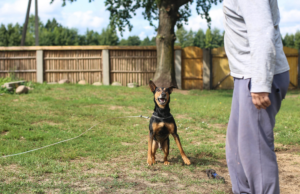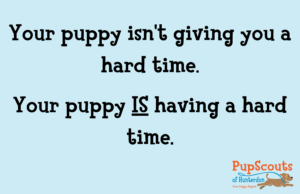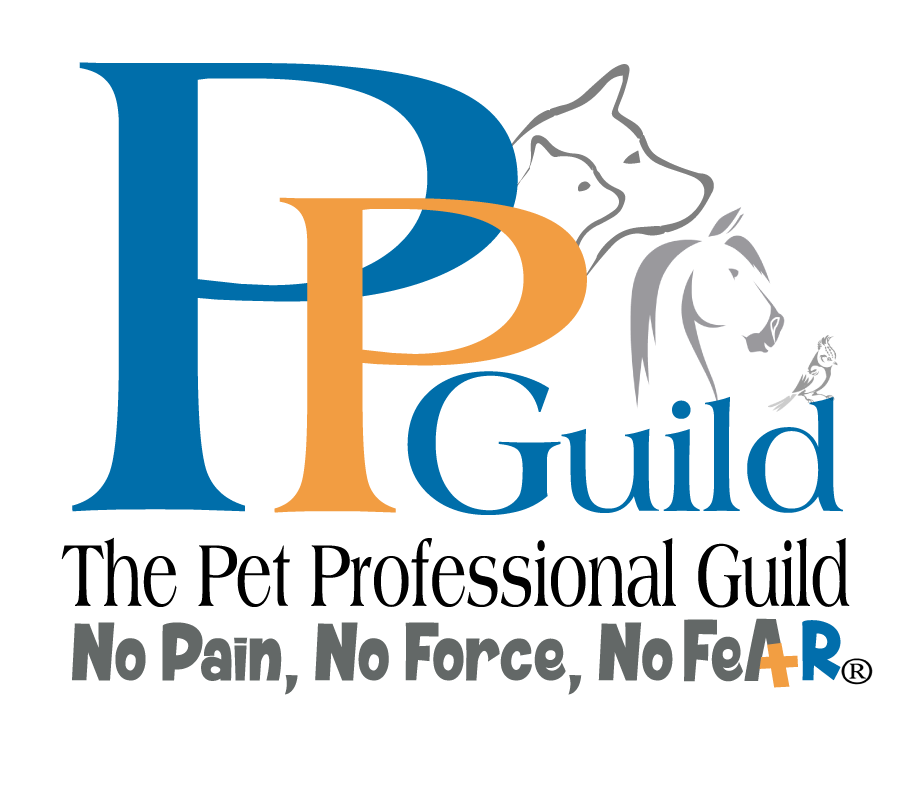If you’ve had your puppy for a while or even for a short time, you have probably found yourself frustrated at times and wondering why your puppy is being so difficult. Even while admiring how adorable your puppy is, you’ve likely wondered how to deal with a stubborn puppy. As puppy parents, we often find ourselves seeking answers on how to fix a defiant puppy or wondering why your puppy is being so spiteful.
Food products have labels. Puppies don’t. We need to be careful about labeling our puppies. Labels can be important and useful, like with our food products. The label clearly identifies what the product is and what’s inside. However, labeling our puppies as “spiteful”, “difficult”, “stubborn”, or “defiant” can be harmful. Let’s explore why.
“I have a Stubborn Puppy” – The Harm of Labels:
When we label our puppies with blanket terms like “stubborn” or “spiteful”, we are projecting our own thoughts and human qualities onto them. This can be harmful in multiple ways:
- Dogs do not possess all of our human-like emotions
- Using a blanket label prevents us from truly understanding their behavior
- By attaching negative labels, we focus on the “bad behavior”
- Negative labels cause us to miss crucial information about what’s actually going on inside
“Why is My Puppy So Spiteful?” – Missing the Underlying Message:
Puppies communicate through their body language and actions. Labeling them clouds our judgement and ignores the fact that their behavior is a form of communication. Instead of writing our puppy off as “difficult,” we need to ask ourselves why they are behaving a certain way. Puppies are usually experiencing stress, fear, confusion, anxiety, or frustration. Ultimately, we don’t have a stubborn puppy on our hands. They might not understand what we are asking of them, or they might be overwhelmed by the situation. Look at their actions as cries for help. Treating their actions as cries for help allows us to address the root cause of what is going on.
“Difficult Puppy?” – The Impact on Your Relationship:
Labeling a puppy can damage the bond we share with them. When we become frustrated with our puppies and label them as “defiant” or “stubborn,” it creates a negative narrative around their behavior. To no surprise, this negativity can lead to frustration and resentment on our part. This ultimately affects how we interact with our puppies.
Have your ever gotten into a disagreement with someone you care about and made assumptions about their actions only to end up in an argument, all because of a simple misunderstanding? Our puppies are also sentient beings, just like our human loved ones. A healthy relationship is built on understanding, patience, and communication, not assumptions and labels.
“How do You Fix a Defiant Puppy?” – Understanding Canine Behavior:
Puppies and dogs are not capable of being “stubborn”, “defiant”, “spiteful”, or “difficult” in the human sense of the terms. The labels fail to account for their natural instincts and emotions. We are human and we often feel frustrated, overwhelmed, or even embarrassed by our puppy’s behavior. This makes it easy for us to jump right in and label our puppy. But when we stop for a moment, take a deep breath, a pause, it gives us a chance to realize their behavior is driven by happiness, fear, frustration, and anxiety. Now we can help our puppies and address their needs and concerns.
Puppy Behavior – Building a Better Relationship:
Undoubtedly, you love your puppy and your puppy loves you. You most likely enjoy curling up on the couch together, going on sniffy walks, and playing fetch and catch games. This doesn’t mean we can’t fracture our relationship in other areas by labeling our puppies with negative terms. Regretably, when we view our puppies in a negative way (stubborn, difficult, defiant, or spiteful) our actions tend to be negative without even realizing it because we are reacting to a situation.
Puppy Behavior Examples:
Your puppy halts and refuses to walk on the leash, prompting you to brand them as “stubborn.” Frustration alters your tone, possibly leading you to tug the leash in an attempt to move them forward.
Your puppy didn’t come when you called and you labeled him “defiant”. Thinking he’s defiant makes you frustrated, as a result you are short with your puppy when they finally come to you.
Your puppy runs when you try to put them in your safe space. He doesn’t want to go in. Or your puppy chews things when you leave him free while you run errands. You label your puppy as spiteful and your interactions with your puppy aren’t happy and fun. Instead, you ignore your puppy and can’t be bothered with him.
Do we have a stubborn puppy? No. In all of these examples the puppy was trying to communicate their feelings or needs. When we ignore those feelings or needs our puppies might not trust us in certain situations. Our puppies know when we have their back (and can feel safe), so to speak. Your puppy might be happy to play fetch with you, but can be worried, stressed, or anxious in other situations.
Lightbulb Moment on Puppy Behavior:
Feelings are a big thing. When you are reacting to how your puppy is behaving, YOU are having a reaction to what is happening in that moment. Does that make you an overall unreasonable person? A bad person? Does it make you a mean person? No. Your reaction is how you are feeling in that moment. It doesn’t label who you are as a person.
Just as your dog is having feelings in a particular moment. Your puppy isn’t giving you a hard time… he is having a hard time.
When you catch yourself labeling your puppy, take a step back and consider the underlying cause of their behavior. Are they stressed? Do they need more guidance? Are your expectations reasonable given their ager and experience?
All in all, we don’t have a stubborn puppy.
Final Words:
Your puppy is a sentient being, complete with emotions. In their quest for guidance, support, security, and care, they look to us. As dedicated puppy parents, our responsibility extends beyond attending to their physical needs. It becomes imperative that we aim to comprehend and connect with them on a deeper level. Abandoning labels allows us to build a strong, trusting relationships with our 4-legged, furry family members. Next time you catch yourself resorting to terms like “he is being a stubborn puppy”, “my puppy is being spiteful”, “he is being defiant”, or “my puppy is just being difficult”, while interacting with your puppy, remember to embrace the opportunity to learn for your puppy and enrich their life.
Struggling with puppy training and raising? Yes, I want to embrace a compassionate approach to help my puppy and better understand their needs.












